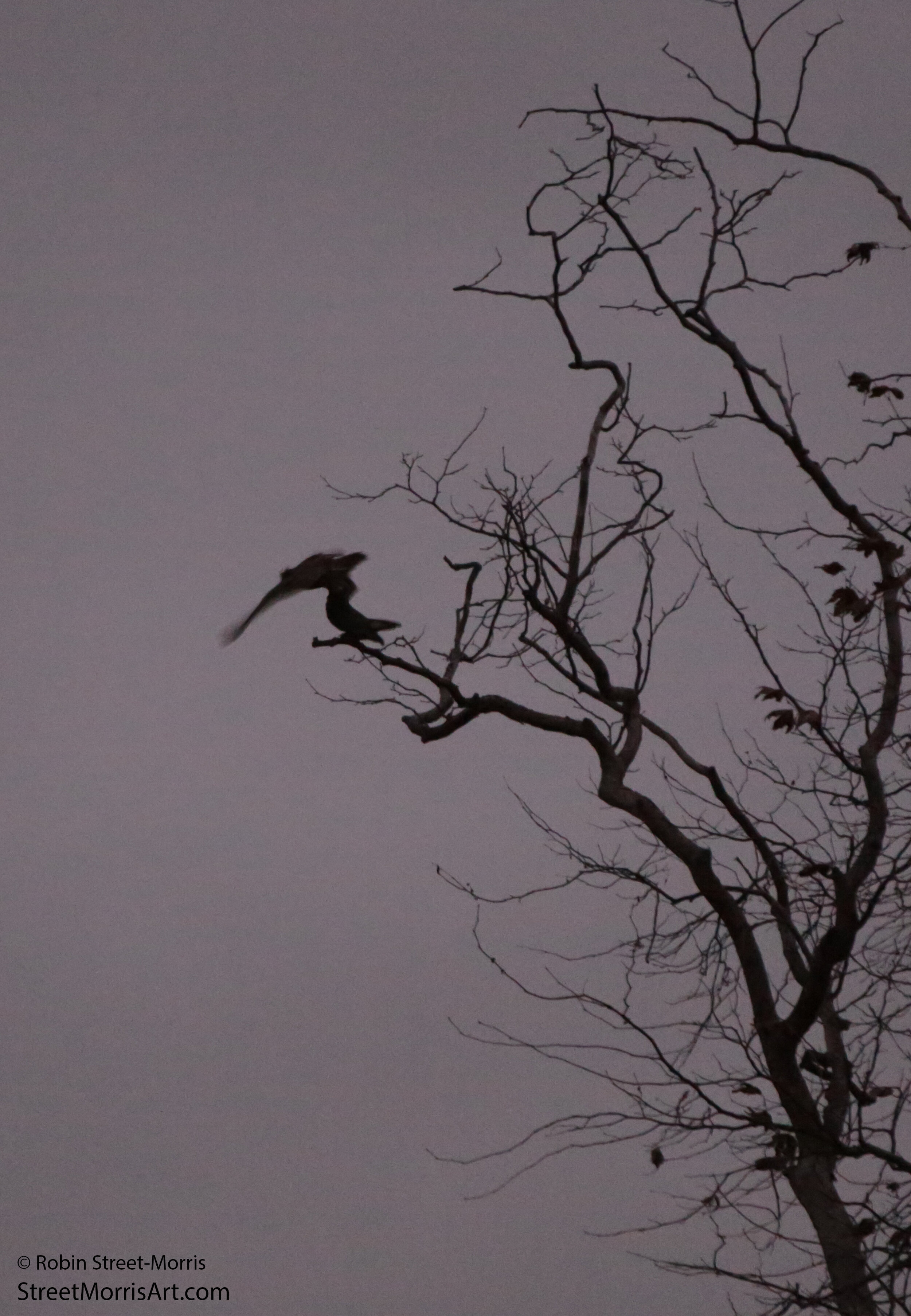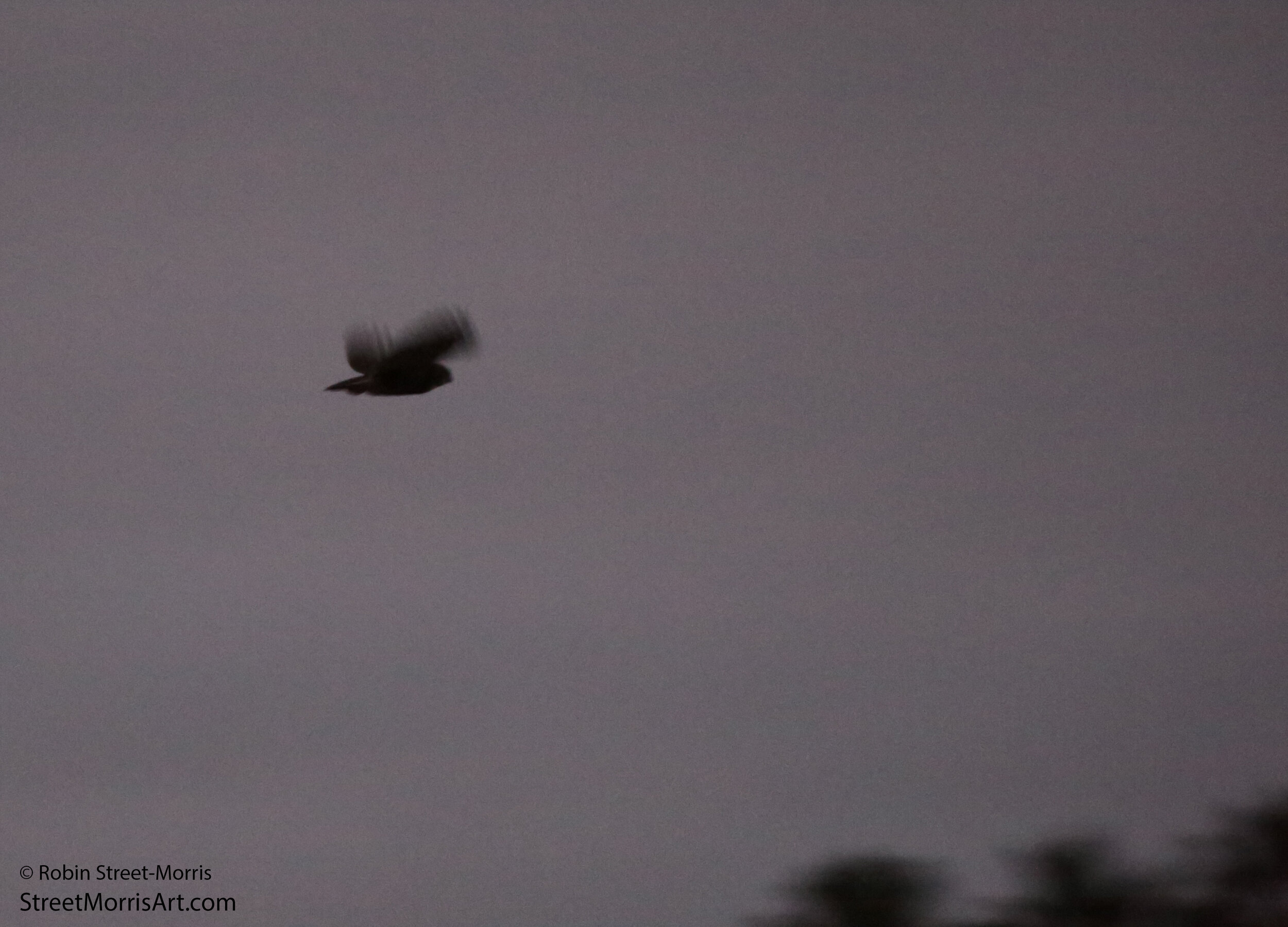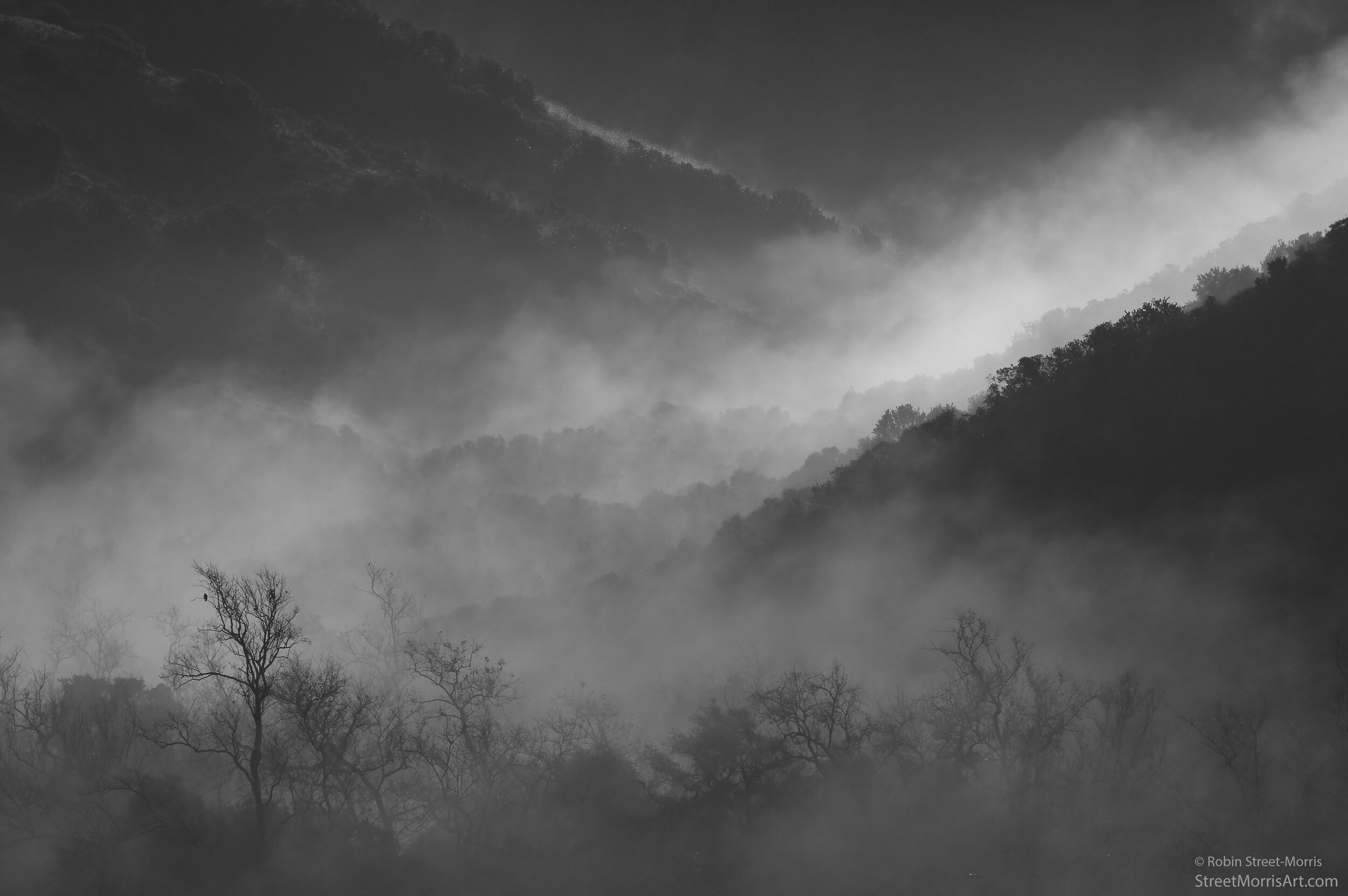I’ve never seen a bird I didn’t like. That said, I do have my favorites and owls are among them. My first owl sighting was of a snowy in Michigan many years ago while traveling between Ann Arbor and Lansing to drop off some art at a show. That’s a particularly ethereal species that leaves a lasting impression. I was fortunate to see two more snowies near Kansas City during an irruption year. Great horned owls are similarly charismatic. I really got into watching them in St. Louis, first with the guidance of naturalist and friend Mark Glenshaw and then on my own. It’s a pursuit that followed me to San Diego where I’ve continued to seek out new pairs of this species and others. So far, I’ve seen many great horned owls, barn owls and western screech-owls in the preserves, burrowing owls at Ramona Grasslands and Mission Bay, and long-eared owls in Anza Borrego Desert State Park. The California spotted owl is my white whale and will likely require many more trips to the mountains if I’m ever to catch a glimpse of one.
The first pair of great horned owls I encountered in San Diego and made a point of visiting for years were (are, hopefully) in Tecolote Canyon Natural Park. Most of my sustained observations of particular pairs have been in Western Hills Neighborhood Park, Torrey Pines State Natural Reserve Extension and here in Los Peñasquitos Canyon Preserve. I’m aware of three pairs in the main canyon, but there are likely quite a few more given the density of quality habitat and abundance of prey. After checking on some plants in the canyon and picking up trash yesterday, I walked over to see if I could catch glimpses of the pair closest to my home. I heard them dueting deep in the live oaks over the bubbling of the creek. Eventually the female flew out and pinnacled on a California sycamore branch. She continued hooting back to him until he flew over to her to mate. She flew north out of sight shortly afterward with me being unable to reacquire her without trampling plants and wandering through people’s yards. Unlike some other pairs of these owls I’ve watched from the beginning of the nesting season to owlets going off to find their own territories, I’ve yet to see these birds nest. The winter rains arrive and the preserve closes due to dangerous flooding and to keep people off the trails that degrade very easily when they’re wet. Maybe some day I’ll get lucky. Even if I don’t, it’s comforting to know they’re there going about their lives in an area that’s been set aside for wildlife, rare native plants and us.
The above habitat is part of the owls’ territory and includes the tree they mated in. Prints of this photograph may be purchased by clicking on said image.






